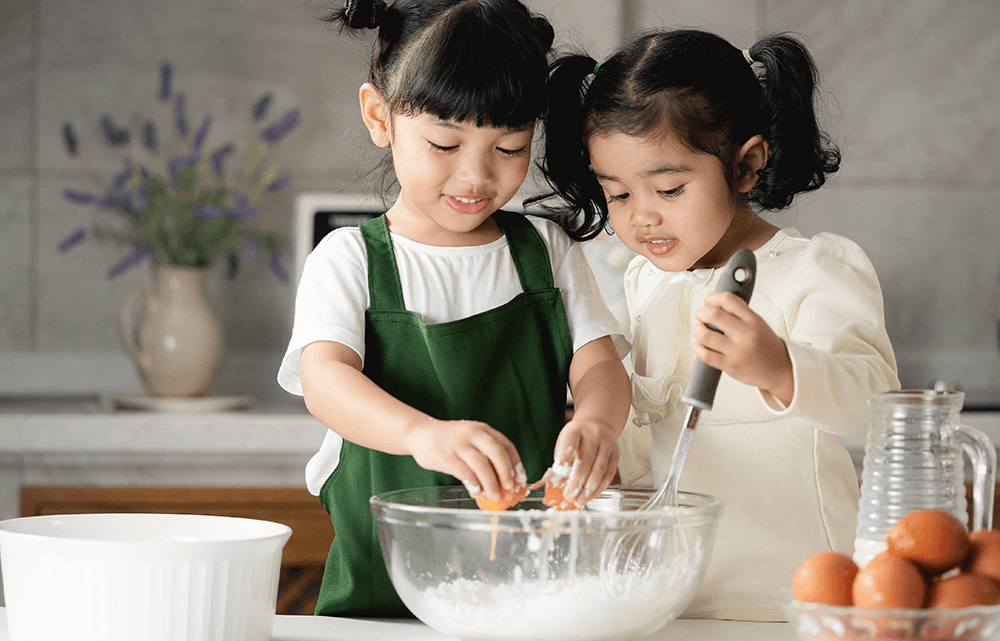A Parent’s Guide to Teaching Children How to Cook
You might find yourself getting a little paranoid at the thought of letting your child loose in the kitchen with all the knives, heat sources and complex gadgets; but cooking is a life skill that everyone should develop. The younger you get your child to start, the easier it will be to allow him or her to be more independent and confident in the kitchen as they get older. Here are five Es you can remember for getting your child to cook more safely and independently at home.
1. Exposure
Are you exposing your child to cooking and the kitchen enough? Some parents don’t have the time or the confidence to cook, resulting in a child who has never entered the kitchen or touched a kitchen knife. A good way to expose your child to the culinary scene is through reading simple or children’s cookbooks and watching cooking shows. If your child shows an interest in cooking or baking, enrolling him or her in a cooking workshop for kids, like the Study’s Kiddie Chefs Academy, may lead to your home having a little chef in the kitchen. Better yet, find a parent-child cooking class that both you and your child can enroll in to get both of you jump-started to cooking together.
2. Ease
Start with the kitchen basics and simple recipes. When you spend time with your child in the kitchen, try to relax. Many parents panic or freak out when they see their child holding a grater or stirring hot liquid over the stove. The more you panic and get upset, the less time your child will want to spend with you in the kitchen. Try to relax and teach your child the importance of hygiene and handwashing, the proper way to handle heat and sharp objects in the kitchen, and how to read and follow through a recipe. Showing trust and patience will allow for more confidence and patience in your child as well.
3. Enthusiasm
Make cooking at home a fun bonding moment between you and your child, or make it a weekend family affair. Start out with simple recipes such as breakfast eggs and pancakes or muffins and cookies. Face the kitchen with enthusiasm and a smile on your face and hopefully your child will catch on to that feeling too!
4. Encouragement
Encourage your child to be in the kitchen more often by making time to be there yourself. Instead of reprimanding your child for making a mess in the kitchen or having a misstep in the recipe, encourage him or her to try again or to be more careful next time. Words of encouragement will light a fire of determination and perseverance in your child to do better in the kitchen.
5. Exploration
Cooking is like a blank canvas and is also very subjective. There are no set rules to achieve the perfect recipe. Allow your child to explore and experiment, based on his sense of taste and his preferences. Make sure you are able to provide your child with the proper tools and ingredients that he or she needs to cook and bake, or be there to suggest substitutions and other ideas. A great way to allow your child to further explore his or her culinary skills is through cooking classes and summer workshops for kids.

